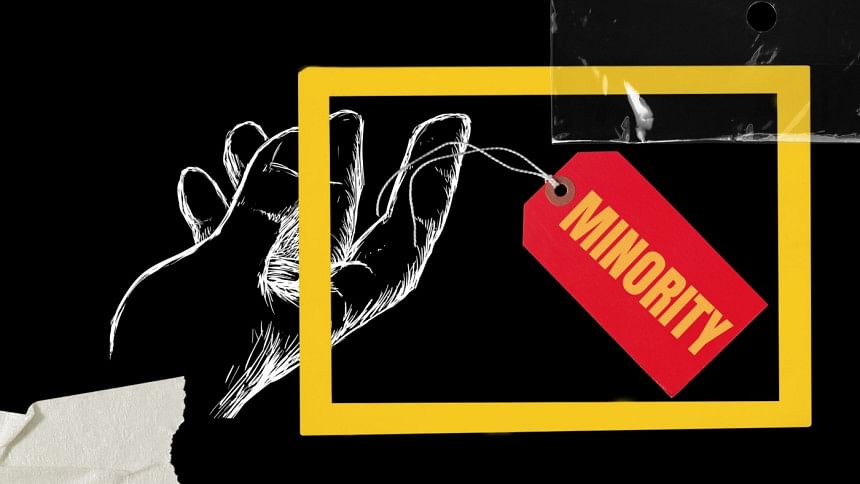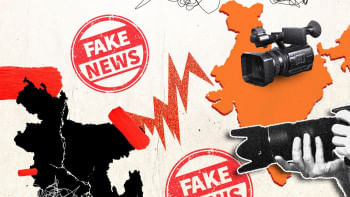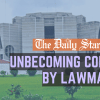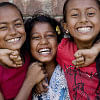I reject the minority tag. Here is why

People from all backgrounds stood shoulder to shoulder supporting the students' anti-discrimination movement for the fall of autocracy, absolutism, and totalitarianism, that the just ousted government had established during its 15-year rule. However, as soon as celebrations began, those who stood united started seeking out enemies within; enemies who may look different, and may have different views about things other than the regime that they brought down together.
So, another chapter within a chapter began—where, on one side, celebration went on of the movement's success while, on the other, some people found themselves in another battle for their existence. In other words, some were subject to the very notion of discrimination that they had been up against. And they were labelled a minority.
According to the United Nations, minorities are groups of people who have either religion, language, or culture in common or a combination of those, but they comprise less than half of a country's population. As per the definition, I belong to a minority group. I was born a Hindu in Bangladesh, a country where more than 90 percent of the people adhere to Islam. Hindus make up only about eight percent of the 170 million people living in the country.
But let me be clear what the majority-minority dichotomy means to me. The minority label carries far more weight than just a number. It brings everything—one's hard work, identity, pride, social dignity, and self-esteem—down to nothing but that label; so much significance on the insignificant labelling of a person, a human life!
Once I earn the minority tag, my worth is always less than another person who sees themselves as part of the majority. The quantifiable image elicits a sense of helplessness, vulnerability, and a need for protection. That makes one meek, on the edge of getting down to one's knees for sympathy instead of fighting for rights, equality, and justice. If the approach becomes collective in nature, any community constituting less than 50 percent of a society tends to accept repression by those from the majority.
That's the reason why after each episode of arson, killing, and vandalism carried out against Hindus, Buddhists, or any other "minority" community in Bangladesh, victims have pleaded for support, scrambled to rebuild their lives, or fled the country. But they hardly summoned the courage to fight back and demand actions against the attackers. Bureaucrats and politicians make pledges to heal the wounds, but the repressed know well those are just hollow words. Over time, the absence of justice for attacks on the communities tears up threads of social harmony.
This time around though, I see people from the Hindu community take to the streets in the capital and in other district headquarters, raising their voices against the "reprisal" attacks on them after the ouster of the Sheikh Hasina-led government. The anger of the attackers has supposedly emanated from the predominant perception that the Hindus support the Awami League, and that Hasina had enjoyed all-out support of India, where Hindus are a majority.
These reasons are merely weaponised to justify communal hatred. It would be foolish to believe that Hindus in Bangladesh have any control over India's stance regarding Bangladesh. When it comes to supporting a political party, everyone should have the freedom to choose who they vote for. However, surmising that everyone belonging to a particular religion shares an identical political belief is nothing but preposterous.
The face of the minority keeps changing depending on national borders. The oppressors in Bangladesh become the oppressed in India. Muslims, who account for nearly 15 percent of India's population, are subject to communal attacks, including arson, looting, and vandalism of houses, shops, and mosques by Hindus. The majority, whoever they are, get provoked and emboldened by divisive political campaigns. In India, both Congress and the incumbent Bharatiya Janata Party used political strategies along religious lines to come to power, even though secularism is enshrined in the constitution. The BJP's third consecutive term after its win this year is feared to consolidate further divisions between Hindus and Muslims in India.
The gathering on August 9 and 10 at the Shahbagh intersection calling for minority rights is probably the biggest of its kind in years, if not decades, in Bangladesh. They have put forth an eight-point demand. I, however, find myself opposing the demand for a minority protection commission and a separate ministry for minorities. When humanity is advancing toward equality, the minority label would drag us behind. Equal rights, respect, and justice are imperative for social and economic progress. Those who are small in number would not appear weak if we can sow seeds for an egalitarian society to take root.
If we look back at history, we would realise that it is always the weak who get the minority tag. The number does not count. During the time of serfdom, landlords and kings were few in numbers, yet they were ruling over vast swathes of land. Even today, the richest of the rich are in the top one percent across the globe. They are not called a minority.
The minority tag will only perpetuate violence and discrimination. It is something we need to forgo to forge a Bangladesh where I am no less because of my religious or cultural identity.
Bishakha Devnath is the business editor of The Financial Express.
Views expressed in this article are the author's own.
Follow The Daily Star Opinion on Facebook for the latest opinions, commentaries and analyses by experts and professionals. To contribute your article or letter to The Daily Star Opinion, see our guidelines for submission.

 For all latest news, follow The Daily Star's Google News channel.
For all latest news, follow The Daily Star's Google News channel. 









Comments